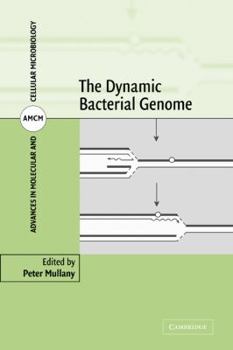The Dynamic Bacterial Genome
(Book #8 in the Advances in Molecular and Cellular Microbiology Series)
Select Format
Select Condition 
Book Overview
This book provides an in-depth analysis of the mechanisms and biological consequences of genome rearrangements in bacteria. Genome rearrangements are a result of the actions of discrete genetic elements such as conjugative transposons, plasmids, phage, and non-conjugative transposons. Bacteria also contain systems to mediate genetic rearrangements such as the general recombination pathway and specialized endogenous recombination mechanisms. The biological effects of these rearrangements are far-reaching and impact on bacterial virulence, antibiotic resistance and the ability of bacteria to avoid the attentions of the host immune system (e.g. antigenic variation). These rearrangements also provide the raw material on which natural selection can act. Each chapter examines the mechanisms involved in genome rearrangements and the direct biological consequences of these events. This book is written by leading research workers and is an invaluable resource for graduate students and researchers in this field.
Format:Paperback
Language:English
ISBN:0521129613
ISBN13:9780521129619
Release Date:February 2010
Publisher:Cambridge University Press
Length:444 Pages
Weight:1.43 lbs.
Dimensions:1.0" x 6.0" x 9.0"
Customer Reviews
0 rating





